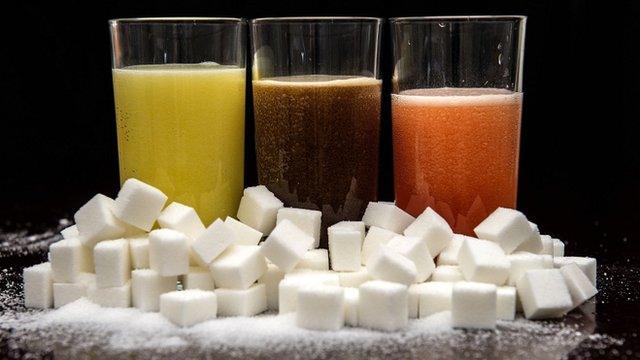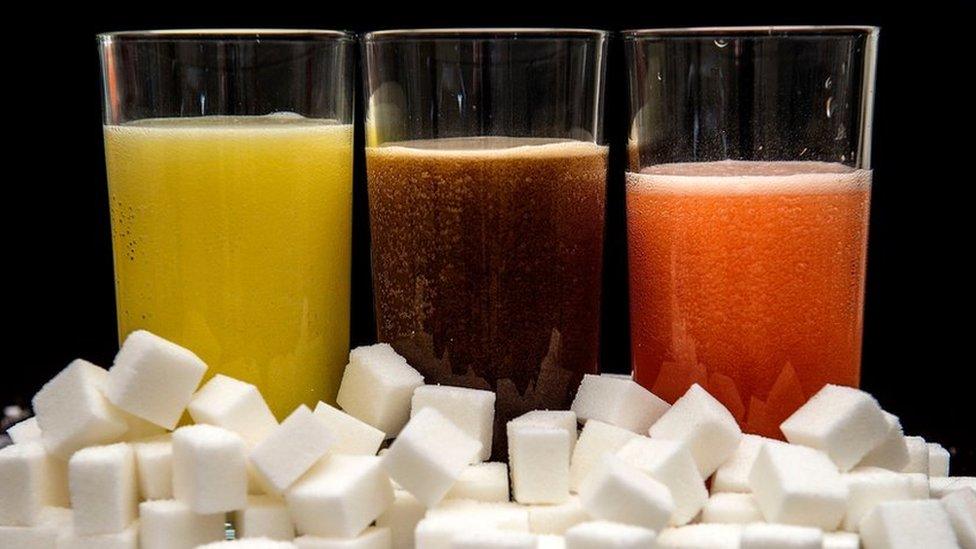Sugary drinks levy will earn schools £415m
- Published

The levy on sugary drinks will fund physical and mental health projects in school
The levy on sugary drinks will provide £415m for sports and healthy eating in England's schools, says Education Secretary Justine Greening.
Every school will be allocated funds to help with facilities for mental health as well as physical exercise.
But schools, which have been warning of cash shortages, will not be able to use the fizzy drink levy to pay for staff.
Ms Greening said that such "health and wellbeing benefits can last a lifetime".
The soft drinks industry levy, announced in last year's Budget, is going to provide £415m for schools in 2018-19 to promote healthier lifestyles.
Childhood obesity
The idea was to tackle childhood obesity by applying a levy that increased according to the amount of sugar in drinks - with the money being spent on improving health in schools.
The government forecast it would raise £520m in 2018-19 - and expected that it would be an incentive for the food and drinks industry to cut levels of sugar.
The levy provides capital funding to support facilities for sports, after-school activities and to encourage healthy eating - but it will not pay for PE teachers or other staff.
All state-funded primary and secondary schools and sixth forms will receive a slice of the sports levy, but there will also be a bidding process for funding for specific projects.
"Schools can really help our children get a healthy start in life from exercise and sport, and also from knowing what a healthy diet means," said Ms Greening.
"It's not only good for them while they're in education, but the health and wellbeing benefits can last a lifetime."
But Gavin Partington, director general of the British Soft Drinks Association, said it was "odd to hinge this investment on a punitive tax against the soft drinks sector which has led the way in helping consumers reduce sugar intake - down nearly 18% since 2012".
"There is no evidence from around the world that a tax of this sort has reduced levels of obesity," said Mr Partington.
- Published16 December 2016

- Published24 March 2016
- Published17 March 2016
- Published16 March 2016
